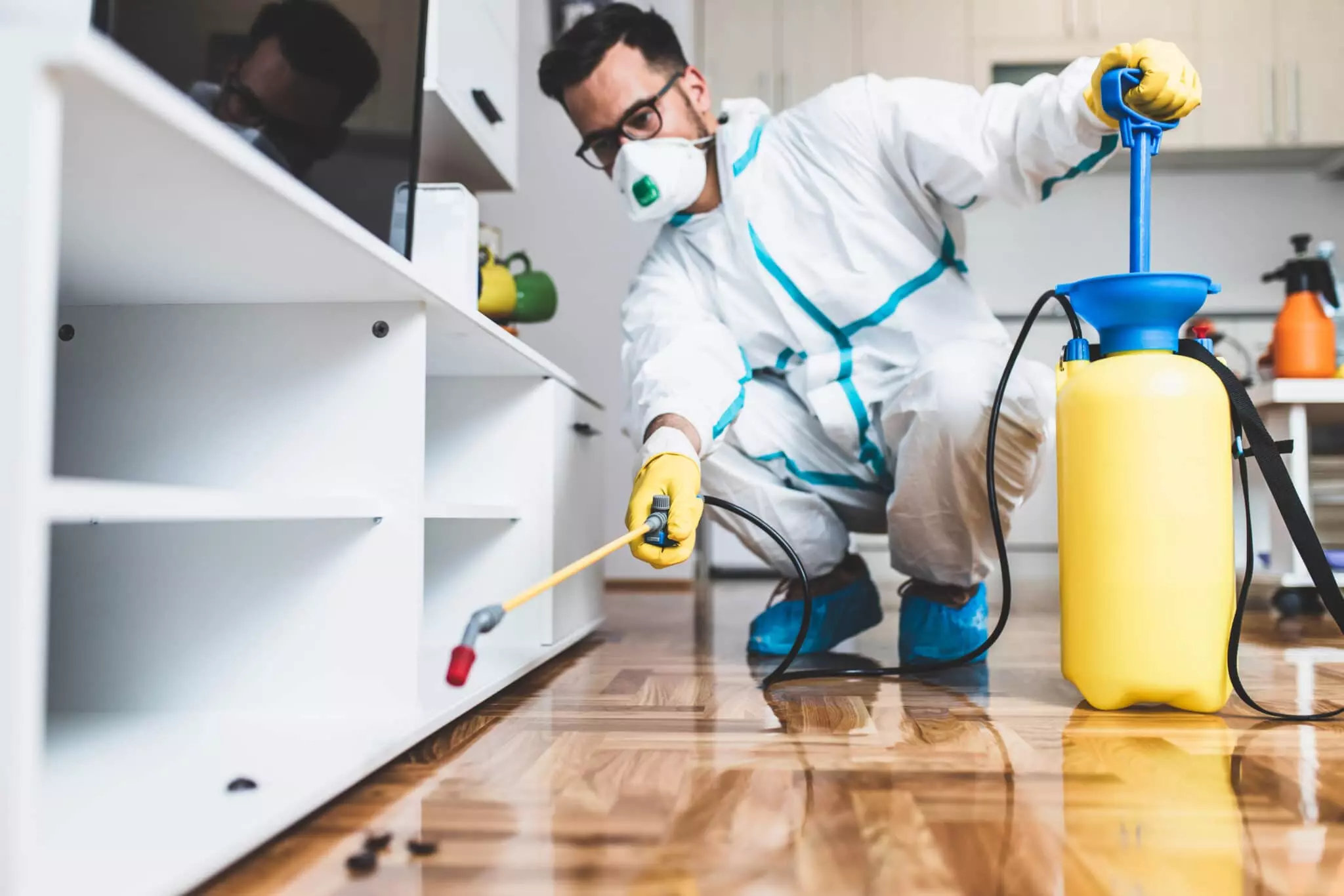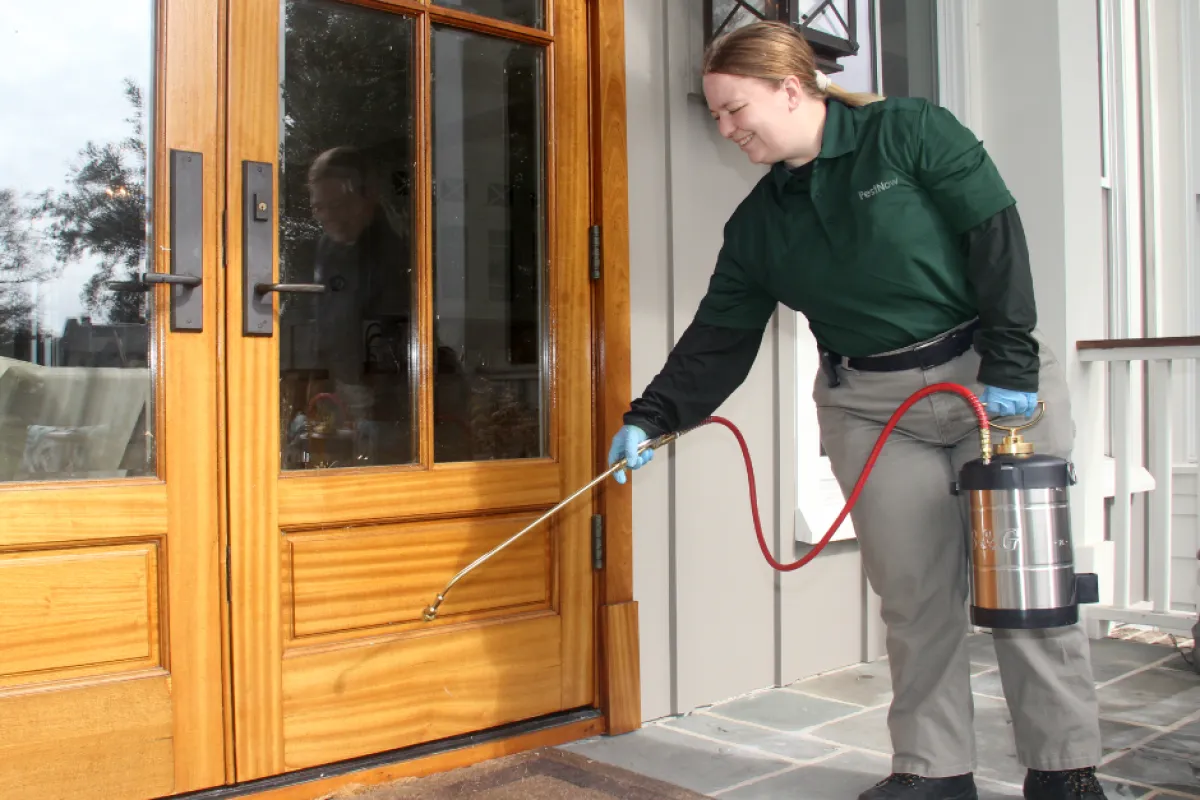Top Quality A1 Pest Control Services Charlotte - Secure Your Home
Top Quality A1 Pest Control Services Charlotte - Secure Your Home
Blog Article
Bed Insect Therapy Failure: Contrasting Chemical Vs. Non-Chemical Solutions
In the realm of bug control, particularly when handling the relentless problem of bed pests, the choice in between chemical and non-chemical therapy services can be a critical one. Both techniques offer unique benefits and downsides, affecting elements such as performance, safety considerations, and overall expense. By checking out the nuanced details of each technique, a more clear understanding of which course to pursue in resolving a bed bug invasion can be acquired.
Efficiency of Chemical Therapies
Chemical therapies for bed bug invasions have actually been extensively recognized for their powerful and rapid effectiveness in removing these parasites. When considering the performance of chemical treatments, it is important to recognize that they can give a quick and thorough service to a bed insect trouble. Expert exterminators typically depend on pesticides to target bed insects at numerous stages of their life process, consisting of fairies, grownups, and eggs. These chemicals normally function by disrupting the bed insects' nerve system, causing paralysis and eventual death.
Moreover, chemical therapies have the advantage of supplying residual effects, meaning that they can remain to get rid of bed bugs also after the first application. This residual action is especially helpful in combating any type of prospective re-infestations. Furthermore, the rapid activity of chemical treatments can bring relief to individuals encountering serious bed bug problems, enabling them to regain control of their living spaces quickly.
Security Problems With Chemical Solutions
One essential facet that needs cautious factor to consider when using chemical remedies for bed bug treatment is ensuring the safety of owners and the environment. While chemical therapies can be efficient in eliminating bed bugs, they may present dangers if not dealt with properly. One of the key security worry about chemical remedies is the prospective damage they can create to human health and wellness. Direct exposure to specific chemicals utilized in bed insect therapies can bring about respiratory system problems, skin inflammation, or various other damaging reactions, especially in people with pre-existing conditions or sensitivities. Additionally, improper application or dosage of chemical pesticides can lead to harmful residues sticking around in the cured area, presenting lasting health dangers to passengers.
In addition, the ecological influence of chemical solutions is an additional considerable consideration. Some chemicals used in bed bug treatments may be harmful to helpful pests, wild animals, and environments if they leach right into the soil or water supply. It is important to make use of chemical therapies carefully, complying with security guidelines, and considering less poisonous options to minimize these risks and ensure the secure and efficient administration of bed pest invasions.
Benefits of Non-Chemical Strategies
Thinking about the prospective safety problems and ecological effect try here connected with chemical solutions for bed bug therapy, discovering non-chemical techniques presents an encouraging choice with numerous distinctive benefits. Non-chemical approaches provide a safer alternative for families, especially those with animals, youngsters, or individuals conscious harsh chemicals. These techniques eliminate the threats of direct exposure to harmful compounds, reducing the capacity for negative wellness impacts. Furthermore, non-chemical treatments are eco pleasant, as they do not add to air or water contamination, making them a sustainable option for useful site bug control.
Additionally, non-chemical options can be effective in targeting bed pests, consisting of hard-to-reach areas where chemical treatments might not pass through - A1 charlotte bed bug exterminator. Techniques such as heat therapy, vacuuming, heavy steam cleaning, and mattress coverings offer thorough obliteration without the usage of unsafe chemicals.
Limitations of Non-Chemical Treatments

In addition, non-chemical treatments typically call for multiple applications to accomplish effective elimination. This can be taxing and might not always ensure total elimination of all bed insects and their eggs, specifically in covert or hard-to-reach locations.
In addition, the success of non-chemical treatments heavily depends on correct application and thoroughness, which can be testing for people without specialist experience. Insufficient application of non-chemical methods might cause insufficient eradication, resulting in consistent problems and the requirement for extra therapies.
As a result, while non-chemical therapies have their benefits, it is important to acknowledge these limitations and consider them when identifying one of the most efficient technique for taking care of bed pest try this out problems.
Price Comparison: Chemical Vs. Non-Chemical Options
Given the restrictions associated with non-chemical therapies, a necessary element to examine in the context of bed pest administration is the cost comparison between chemical and non-chemical alternatives. In contrast, non-chemical therapies like warmth treatment or vapor can be much more expensive, with prices varying from $1,000 to $6,000 for a whole home. While the initial cost of chemical treatments may seem lower, several therapies might be required to completely get rid of the problem, potentially enhancing the general cost.
Conclusion

Taking into consideration the prospective safety and security worries and environmental impact linked with chemical options for bed bug treatment, discovering non-chemical methods presents an encouraging option with a number of distinct advantages.Provided the constraints connected with non-chemical therapies, a vital aspect to review in the context of bed insect monitoring is the expense comparison in between chemical and non-chemical choices. In contrast, non-chemical therapies like heat therapy or steam can be more expensive, with prices ranging from $1,000 to $6,000 for a whole home. While the preliminary price of chemical therapies might seem lower, multiple therapies might be called for to totally get rid of the infestation, possibly increasing the general cost.In final thought, when contrasting chemical and non-chemical bed pest therapy options, it is necessary to consider efficiency, safety and security, benefits, limitations, and expense.
Report this page